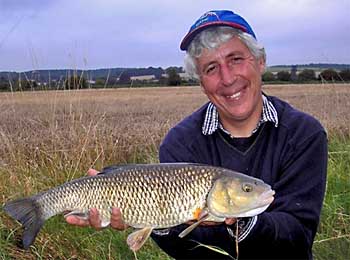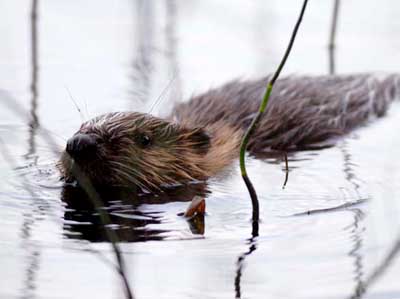Tough times for River Kennet
The recent decision by the water regulator OFWAT to limit investment in sewage treatment works improvements over the next five years could have a damaging impact on important chalkstreams such as the Berkshire Kennet according to Reading West MP Martin Salter.
Speaking in the annual Commons debate on fisheries Mr Salter, who is also Labour’s Angling Spokesman said: –
“I share part of the River Kennet with the hon. Member for Newbury. We have seen increased turbidity in the river as a result of the opening of the Kennet and Avon canal, increased abstraction as a result of increased demand, point source pollution, and a prevalence of invasive species such as signal crayfish, which are decimating fish stocks. Some crayfish will actually lie under the vent of a spawning fish, eating the eggs as they emerge and thus preventing all opportunities for the recruitment of new fish.
“I was disappointed by Ofwat’s draft determination, and also by the marginally better final determination that was published last week. I made serious criticisms of Ofwat-particularly in respect of the Thames Water region-for failing to take account of the need for continuing increased investment in dealing with waste water and sewage and tackling leakage, and, incredibly, failing to address the necessity of examining the impacts of climate change. It is true that Ofwat has allowed some significant investment. The Thames Tideway tunnel will make a major contribution, and despite the half-witted opposition of people such as Shaun Bailey and the leader of Hammersmith and Fulham, Stephen Greenhalgh, I believe it will make a radical difference. However, I worry about whether there will be sufficient investment in the 300-odd smaller sewage works which have an impact on Thames tributaries, including the Kennet.”
Mr Salter had previously written to OFWAT to object to their Draft Determination particularly in respect of the lack funding for leakage works and improvements to the 349 smaller sewage treatment works in the Thames region.
In his letter to the OFWAT Chief Executive Regina Finn, he said –
–
“I have had an opportunity to see the concerns expressed by a number of organisations, including the RSPB and WWF, who have expressed similar concerns over the long term implications of price cuts and reductions in the investment necessary to maintain and improve sewerage infrastructure and tackle leakage. They, like me, are clear that there are serious environmental implications arising from your draft determination. Indeed WWF have used their key objectives from their Rivers on the Edge partnership to assess the OFWAT draft determination which is found wanting in a number of key areas.
“Turning to my own area I consider it completely unacceptable that the draft determination reduces funding for mains renewal to control leakage by 36% and that this could lead to a rise in leakage of nearly 30 million litres a day by 2015. With a rising population and an uncertain security of supply due to climate change it is massively irresponsible not to be continuing the progress that has been made over the last three years in stemming leaks in the Thames Water area. Perhaps most seriously of all is the reduction in funding for the maintenance and improvement of the sewage treatment works by 27%. My local river Kennet is one of three southern chalk streams identified as seriously at risk and yet around 15,000 new homes are likely to be built in the catchment area over the next five years. Across the region as a whole this reduction in funding will mean that no fewer than 75 sewage treatment works will be highly likely to fail to meet their statutory consents on the standard of their discharges. As a result our local rivers will be further polluted.
In summary I contend that the draft determination needs serious revision in order to prevent unacceptable environmental damage.”
Mr Salter added: –
“I know that higher water bills are hardly likely to be popular, particularly in a general election year, but the fact remains that there has been chronic under investment in the infrastructure of our water industry for many years. London’s creaking and leaking, Victorian water pipes waster nearly 600 million litres a day which only drives up demand for further abstraction. Increases in housing numbers in the Thames Water area will increase demand still further and could see some of the smaller tributaries of the Thames reduced to just a trickle in the summer months.
“Low flows and inadequate sewage treatment works are a recipe for severe environmental damage. The middle and lower reaches of the Kennet are not in a healthy condition for many reasons and I fear that these latest restrictions on investment imposed by OFWAT will make a bad situation worse.
“I will be meeting Environment Agency bosses later this month to express my deep concerns and those of many anglers and environmentalists who fear for the future of rivers such as the Kennet which was once a crystal clear pristine chalkstream right down to the outskirts of Reading.”
Salter Takes Aim At Beaver
Angling MP criticises “ludicrous” plans for releasing beavers into English countryside and heightening flood risk
Labour’s Parliamentary Angling spokesman Martin Salter used last week’s Commons debate on fisheries to describe as “ludicrous” plans by Natural England to re-introduce the beaver to the English countryside. The Reading West MP highlighted the new fish passage regulations and proposed new rules governing hydropower schemes which are designed to remove obstructions to migrating fish seeking spawning grounds.  In his speech, Mr Salter said:-
In his speech, Mr Salter said:-
“The current situation is ludicrous. On the one hand, we are seeking to ensure that migratory fish can run the rivers and reach the spawning grounds. On the other, Natural England talks of reintroducing the beaver, the one creature which, by creating dams, will ensure that all our legislation on fish passes becomes absolutely worthless. If we really have to introduce endangered species, why do we not take the DNA of Tyrannosaurus Rex or the wolf and bring them back to Britain? There must come a point at which reality impinges on what Natural England seeks to do.”
Back in March, Natural England and the People’s Trust for Endangered Species published a feasibility study into the re-introduction of the European beaver and acknowledged the “contribution that beavers make to river and wetland management.” The study claimed that “it is clearly feasible to re-introduce beavers into England with many consequent benefits, not least for beavers to assist with river and floodplain restoration.”
Mr Salter added:-
“These must be two of the most absurd statements uttered by a publicly funded body in recent years. Quite clearly Natural England envisages an army of highly literate beavers in council uniforms carefully consulting maps of flood risk sites before deciding which trees to chop down and where to build their dams !”
“In reality, these are four stone giant rodents with a genetic programme set to cause deforestation and flooding. Hardly a priority for the English countryside at a time when we are trying to plant more trees and alleviate the effects of the worst flooding many communities have ever experienced.”
“An adult beaver can bring down a 10 inch wide tree in under an hour, and a single beaver family will fell up to 300 trees a year. In the upper Danube region of Germany, beavers have caused £5 million of damage and they are now being culled.”
“In Scotland, where a limited release programme has already caused great controversy, the Tweed salmon fishery alone is worth an estimate £100 million to the local economy. In the south of England, the rivers Test and Itchen generate over £3 million between them and are situated close to the New Forest, one of the proposed release sites. Further west in the New Forest we have the Hampshire Avon, perhaps the most famous angling river in England. It is not just fish such as salmon and sea-trout that could fail to reach their spawning grounds due to beaver dams – most river species including chub, barbel, roach and dace will migrate considerable distances to find suitable sites.”
Other proposed release locations in the Natural England study include the Weald of Kent, the Peak District, the Forest of Bowland and, incredibly, the Lake District.
Mr Salter added:-
“The prospect of unconstrained beaver dams raising flood water levels still higher will be greeted as a sick joke by people in Cumbria who are still clearing up the wreckage of the November flooding.”
Details of the Natural England/PTES study and accompanying press release.
And……
SALTER URGES ANGLERS TO PARTICIPATE IN THE DESIGNATION OF NEW MARINE CONSERVATION ZONES
Labour’s spokesman for Angling Martin Salter used a speech in Westminster at an event by the Marine Conservation Society urge UK anglers to become involved in the designation of the new Marine Conservation Zones.
The event was to launch the Marine Conservation Society’s “Your Seas Your Voice” campaign which is urging anglers, environmentalists, and members of the public to assist the MCS in proposing a list of marine wildlife sites. Worthy of future protection .
Marine Conservation Zones, established by the new Marine and Coastal Access Bill, will be introduced to protect fish spawning grounds and nationally important habitats and species such as eelgrass beds, seahorses, and pink sea fans, but the exact location of the Zones are yet to be confirmed.
The Your Seas Your Voice campaign details on their website the 73 sites that that the Marine Conservation Society believe would make good Marine Conservation Zones, and asks the public to support these sites.
Speaking at the event, on a platform with TV presenter Miranda Krestovnikoff, Martin Salter said:-
“The Marine Act is a triumph for environmentalists and recreational anglers alike, and the success of the Bill is down to these groups working with each other to see off organised opposition from the commercial fishing interests. It is imperative that this co-operation continues in the location of the new Marine Conservation Zones. I urge all anglers and angling bodies to engage with the Your Seas Your Voice campaign to ensure that our marine reserves get the protection they deserve.”
He added:-
“Ministers have said that they expect angling to be permitted a most of the new MCZs and in the buffer zones around all of them. However other groups may have a different view which is why I want the voice of sea anglera to be heard loud and clear.”










